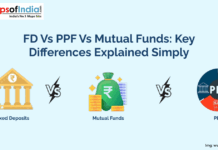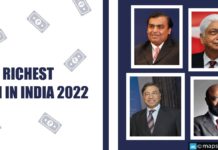The much hyped and less debated Food Security Bill was brought into action by the UPA government is haste in the form of an ordinance. This means that it was implemented without being debated in either the Lok Sabha or the Rajya Sabha. By now, the law has been implemented in the Congress ruled states.
The Food Security Bill will ensure a highly subsidized food to nearly two-third of the 1.3 billion Indian population, primarily in the rural areas. For the current fiscal, a budget outlay of Rs. 10,000 crore has been sidelined, mostly in the Congress ruled states. The bill and its objective is very noble and much required considering the fact that even after boasting of high growth rates for almost a decade, guarantee of two meals to the poor remains a distant dream. The bill also aims to counter the social evil of malnourishment in small children under the age group of three.
However, what bothers economists and politicos alike is the timing and the manner in which the bill has been introduced and implemented. At a time when the Indian economy is shaking with lack of vision and accountability under the threats of a financial downgrade due to fiscal deficits and policy paralysis, the implementation and execution of the bill is considered to be a deterrent in the efforts of the finance minister, P Chidambaram to reduce the fiscal deficit.
The bill, when implemented in totality, will require a budget outlay of Rs. 1.25 lakh crore per annum for execution. As such the financial reserves will have to bear huge stress to squeeze out such a huge amount for the project. Considering the fact that the economy is not in a good shape and the foreign investments have dried up which is evident with the free fall of the rupee, bringing the Food Security Bill into action cannot be considered to be a smart move. Even though institutions like the RBI and former RBI governors like Bimal Jalan have questioned the capability and logic of the government to incur such huge money guzzling programmes, the government’s move appears to be a political gimmick ahead of the much anticipated 2014 general elections.
Foreign economic experts like Morgan Stanley and Crisil have strictly voiced their opinion against the introduction of this bill as this may severely affect the country’s financial reserves. Former finance minister of the erstwhile NDA government, Mr. Yashwant Sinha and his colleague, Arun Shourie have lambasted the government’s move to introduce the bill in troubled waters. They have even accused the prime minister Mr. Manmohan Singh of remaining silent to such dangerous moves for the economy.
The speculations by the politicians relate the introduction of the bill to the coming general election in 2014 and are being compared to the farm loan waiver scheme of 2009. The UPA led by the Congress has taken a severe beating of its image on account of the numerous scams that have been unearthed during its second term. Moreover, a lack of policy paralysis has made the government unpopular more than even before. As such, such speculation of associating electoral motifs with the introduction of this bill cannot be ruled out.
At a time when the industry watchdogs are demanding investment in verticals like infrastructure, the food bill surely has the potential to gobble up these investments which are lined up for infrastructure and derail the whole recovery process. Due to this, the food subsidy bill is expected to rise to 1.2 % of the GDP from the current 0.8%. This will lead to an increase in fiscal deficits which currently stands at around 4.8% of the GDP. A high fiscal deficit will deepen the economic paralysis that the nation finds itself currently as the prospects of FDI and other investments into the India growth story will be completely wiped out. Although P Chidambaram has promised to meet the current fiscal deficit target of 4.7% of the GDP, much has been speculated about this possibility. Moreover, the finance minister has come under severe criticism for his approach to tax high income individuals in the income ranges exceeding Rs 10 crores.
Electorally, the consequences of the MGNREGA and the farm loan waiver scheme cannot be put under the carpet as the Congress led UPA came back to power with a thumping majority. As such, it is not at all surprising the hasty manner in which the populist bill has been brought into effect, especially under the insistence of the Congress President, Sonia Gandhi. However, what lies to be seen is whether a government mired with huge corruption allegations and political nepotism can influence the common man, particularly in rural areas, to adore and accept Rs. 5 kg of rice, wheat and coarse grains which the bill promises or pass the baton of change to the NDA.
Related information:




